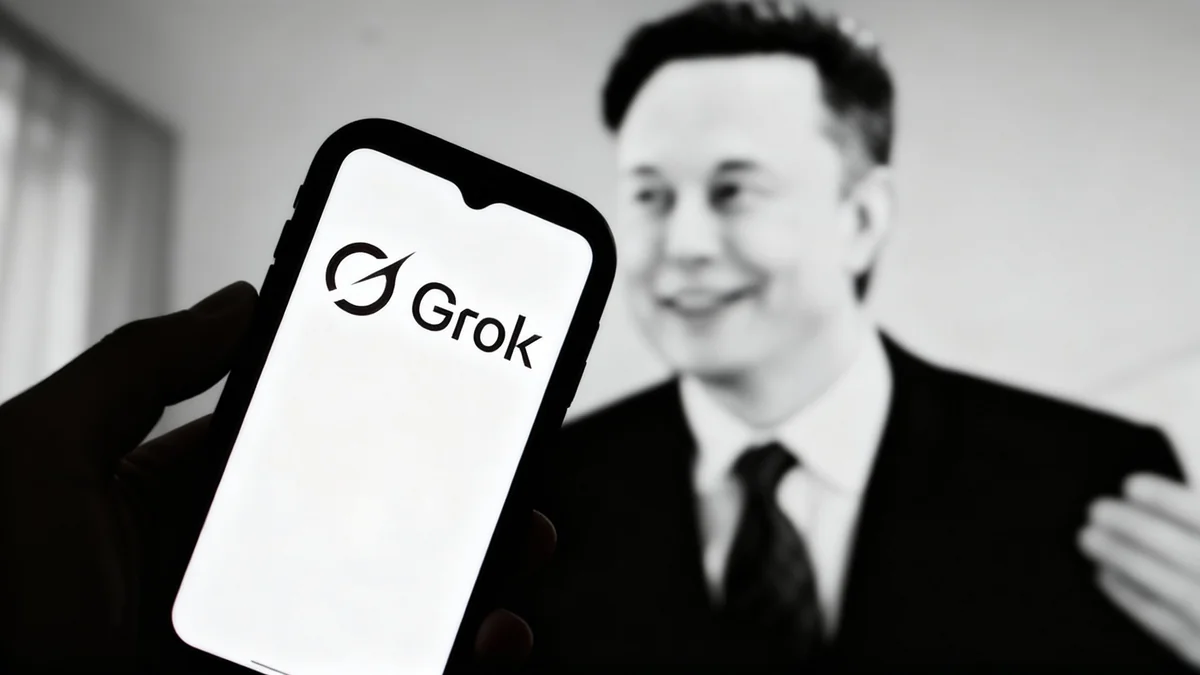Elon Musk's newly launched artificial intelligence-powered encyclopedia, Grokipedia, has encountered significant criticism from academics and users just days after its debut. The platform, intended as an alternative to Wikipedia, is being scrutinized for widespread factual inaccuracies, alleged political bias, and lifting large sections of content directly from the very source it aims to replace.
Key Takeaways
- Grokipedia, an AI-driven encyclopedia from Elon Musk's xAI, launched with claims of being a superior source of truth.
- Academics and users have identified numerous factual errors in biographical and historical entries.
- The platform has been accused of promoting right-leaning viewpoints on politically sensitive topics.
- Experts raise concerns about the transparency and reliability of AI-generated knowledge platforms controlled by individuals.
A Contentious Launch
Positioned by Elon Musk as a source for “the truth, the whole truth and nothing but the truth,” Grokipedia was introduced to challenge the dominance of Wikipedia, which some critics, including Musk's supporters, label as biased. The launch was met with enthusiasm by those seeking an alternative online reference.
However, the initial excitement was quickly tempered by reports of significant problems. Users discovered that many of Grokipedia's articles were nearly identical to their Wikipedia counterparts, while others contained glaring falsehoods or presented information with a distinct ideological slant.
Factual Inaccuracies Raise Alarms
One of the most prominent examples of error involved the entry for Sir Richard Evans, a distinguished British historian. Upon reviewing his own biography on Grokipedia, Professor Evans found it filled with fabricated details about his academic career, including false information about his doctoral supervisor and professional appointments.
Evans, an expert on the Third Reich, noted that the AI appeared to give equal weight to unsubstantiated online comments and rigorous academic work. “AI just hoovers up everything,” he commented, highlighting a fundamental issue with the model's fact-validation process.
Historical Distortions
The Grokipedia entry for Albert Speer, Hitler's architect, reportedly repeated discredited claims made by Speer himself. These falsehoods were corrected in a 2017 biography but were still present in the AI-generated text, demonstrating a failure to incorporate up-to-date, verified historical scholarship.
These issues were not isolated. The biography of Marxist historian Eric Hobsbawm also contained multiple inaccuracies regarding his life and career, further undermining the platform's claim to reliability.
Allegations of Political Bias
Beyond factual errors, Grokipedia has drawn criticism for its handling of politically charged subjects, often aligning with viewpoints favored by Musk and his supporters.
For instance, the platform's description of the far-right group Britain First as a “patriotic political party” starkly contrasts with Wikipedia's classification of the group as “neo-fascist.” Similarly, the events at the U.S. Capitol on January 6, 2021, were described as a “riot,” a term that avoids the more severe characterization of an attempted coup used by many other sources.
“If it’s Musk doing it then I am afraid of political manipulation,” said cultural historian Peter Burke, an emeritus professor at Emmanuel College, Cambridge. He warned that the anonymity of encyclopedia entries can give them “an air of authority it shouldn’t have.”
Contrasting Global Events
The encyclopedia's entry on the Russian invasion of Ukraine also raised concerns. It cited the Kremlin as a prominent source and included official Russian terminology such as the goal to “denazify” Ukraine. This approach differs significantly from established encyclopedic practices that prioritize neutral, multi-source verification.
In another example, Grokipedia suggested there were “empirical underpinnings” to the “great replacement” theory, a concept widely regarded by experts as a conspiracy theory.
The Challenge of AI-Generated Knowledge
Experts in information science and fact-checking argue that Grokipedia's launch highlights the inherent risks of relying on AI to curate knowledge without transparent human oversight.
A Clash of Cultures
David Larsson Heidenblad of the Lund Centre for the History of Knowledge described the situation as a clash between Silicon Valley's iterative “move fast and break things” culture and the traditional scholarly approach, which builds trust through meticulous, long-term research and peer review.
Andrew Dudfield, head of AI at the fact-checking organization Full Fact, questioned the trustworthiness of the new platform. “It is not clear how far the human hand is involved, how far it is AI-generated and what content the AI was trained on,” he stated. “It is hard to place trust in something when you can’t see how those choices are made.”
In response to the launch, the Wikimedia Foundation, the non-profit that operates Wikipedia, emphasized its own strengths. A spokesperson highlighted its “transparent policies, rigorous volunteer oversight, and a strong culture of continuous improvement” as key differentiators.
As Grokipedia continues to operate, the debate over who controls information in the age of AI, and what standards should apply to AI-generated truth, is set to intensify. The platform's early performance suggests that creating a reliable, unbiased, and accurate encyclopedia is a far more complex challenge than simply deploying a powerful language model.





